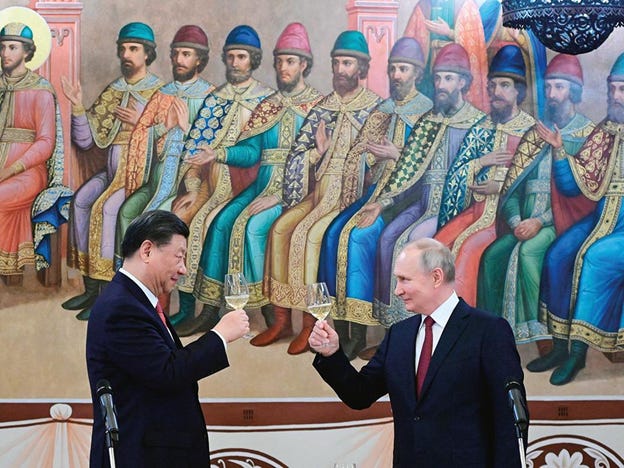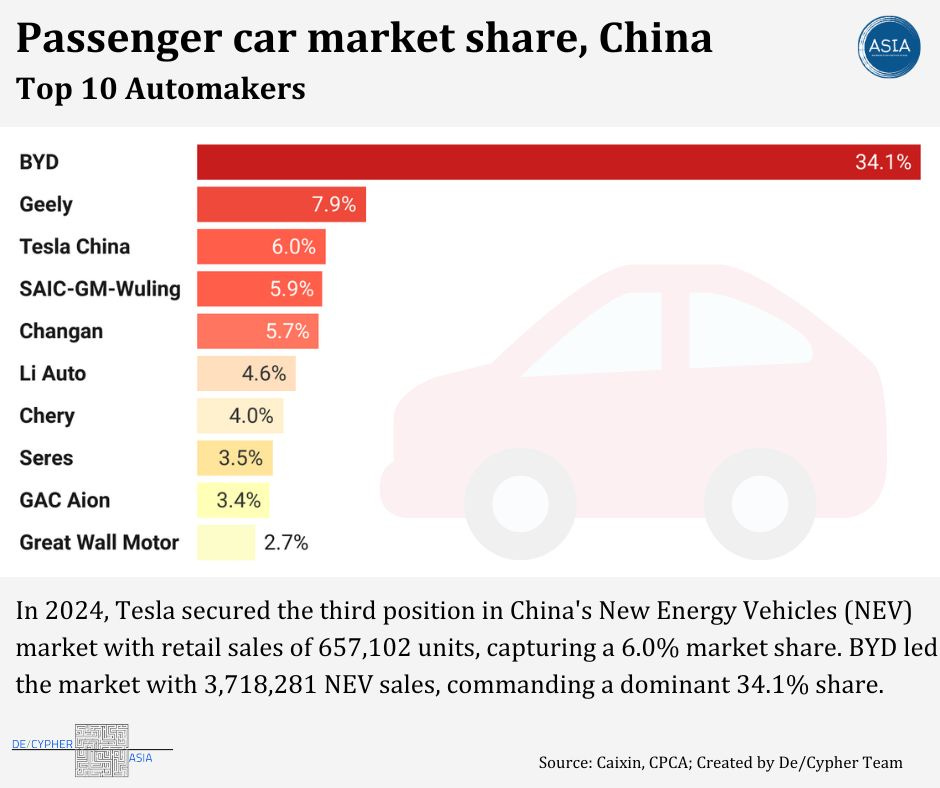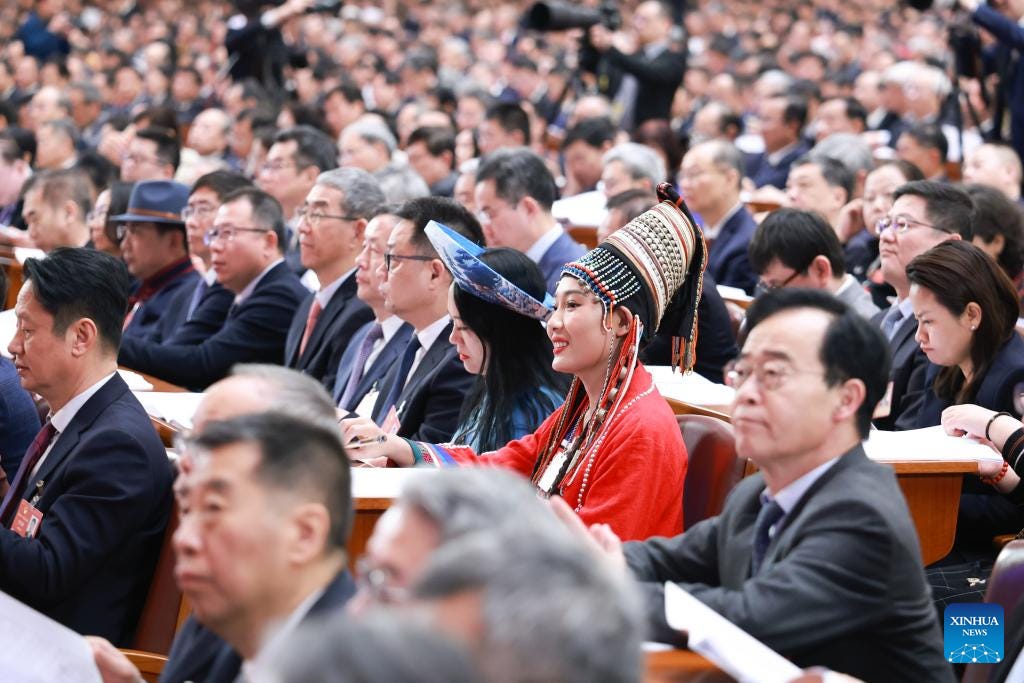China this Week: Xi Jinping Prioritises 'Regime Security' Over Economic Struggles
This week's Beyond the Great Wall provides insight into China's economic struggles, tech ambitions, and escalating geopolitical tensions amid shifting US relations.
China Quote 🗩
“China’s tradition is to respect in return for respect, and respond in the same way if the other side acts disrespectfully” -Wang Wentao, Minister of Commerce, Peoples Republic of China
Economic Activity🏦
China’s Capital Markets Embrace Tech Boom with Stronger Policy Support
The Global Times reports that China’s capital markets are increasingly backing high-tech firms, with over 90% of 2024 listings on STAR Market, ChiNext, and the Beijing Stock Exchange being tech enterprises. The China Securities Regulatory Commission pledges more inclusive policies, enhanced financial instruments, and long-term capital cultivation to support innovation, reflecting Beijing’s push for technological self-sufficiency and economic modernization.
China Determined to ‘Resolutely’ Keep Yuan Stable Amid US Tariff Pressure
Sylvia Ma writes in the South China Morning Post that China has vowed to maintain yuan stability despite US President Donald Trump’s accusations of currency manipulation. The People’s Bank of China reaffirmed its market-driven approach while guarding against external shocks. Beijing remains open to trade negotiations but warns it will defend its interests, with officials pledging fiscal and financial measures to counter economic volatility.
China Keeps Its Economic Growth Target at 'Around 5%' for 2025
The Economic Times reports that China has set its 2025 GDP growth target at 5%, despite mounting economic challenges, including a looming trade war with the US. The government plans to boost growth through consumer rebates, increased spending, and a shift to a moderately loose monetary policy, while prioritising high-tech innovation over real estate dependency.
Inside China🐉
China’s Tech Minister Removed from Office
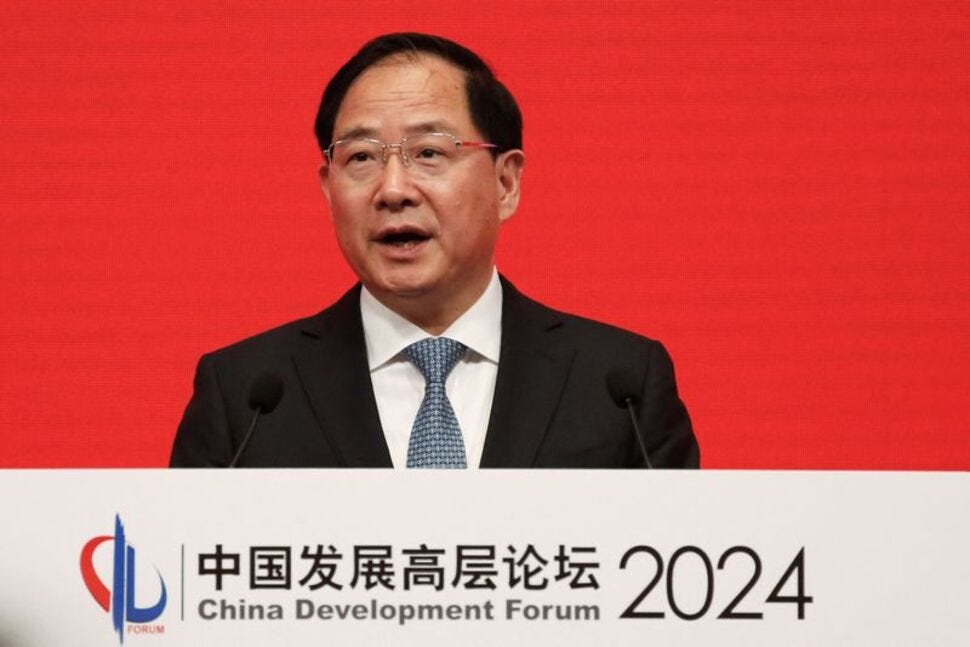
Ryan McMorrow and Demetri Sevastopulo write in the Financial Times that China’s technology minister, Jin Zhuanglong, has been removed from office after disappearing from public view for two months. His absence fuels speculation of a corruption probe, as he becomes the fourth cabinet member dismissed under Xi Jinping’s anti-graft campaign. He is replaced by Li Lecheng, former governor of Liaoning province.
Why ‘Catastrophic’ Medical Bills Are Hurting China’s Economy
Joe Leahy and Wenjie Ding write in the Financial Times that despite expanded healthcare coverage, millions of Chinese households face financial devastation due to medical costs. High out-of-pocket expenses drive precautionary savings, dampening consumption and economic growth. Rural areas suffer most, with scams and crowdfunding attempts highlighting systemic gaps. Analysts urge Beijing to prioritise social welfare spending to stimulate domestic demand.
Xi Jinping Prioritises ‘Regime Security’ Over Fighting Economic Turmoil
Katsuji Nakazawa writes in the Nikkei Asia that despite China's deepening economic woes, Xi Jinping is focusing on consolidating his power rather than pursuing aggressive economic recovery measures. With concerns that the downturn will persist, Xi appears intent on securing regime stability, potentially paving the way for another term in 2027.
China and the World🌏
Xi and Putin Vie to Exploit the Second Trump Age
Katie Stallard writes in the New Statesman that Donald Trump’s return to power has emboldened Vladimir Putin and Xi Jinping, as the US shifts away from its previous support for Ukraine. Trump’s administration voted against a UN resolution condemning Russia’s invasion, raising concerns that Washington may abandon Ukraine, weaken NATO, and accelerate the decline of the liberal international order.
China Hits US Agriculture, Says It Won't Be Bullied by Fresh Trump Tariffs
Joe Cash, Mei Mei Chu, and Nicoco Chan write in Reuters that China has imposed 10%-15% retaliatory tariffs on $21 billion worth of US agricultural exports and restricted 25 American firms in response to new US levies. While Beijing seeks a trade truce, escalating tensions risk worsening US inflation and hindering China’s economic recovery, with potential benefits for alternative suppliers like Brazil.
China Says It Is Ready for 'Any Type of War' with US
Laura Bicker writes in the BBC that China has escalated rhetoric against the US, warning it is prepared for "any type of war" after Donald Trump imposed new tariffs. Beijing retaliated with levies on US farm exports and announced a 7.2% defence budget increase. While seeking global partnerships, China aims to counter US pressure amid rising economic and geopolitical tensions.
Tech in China🖥️
China Announces High-Tech Fund to Grow AI, Emerging Industries
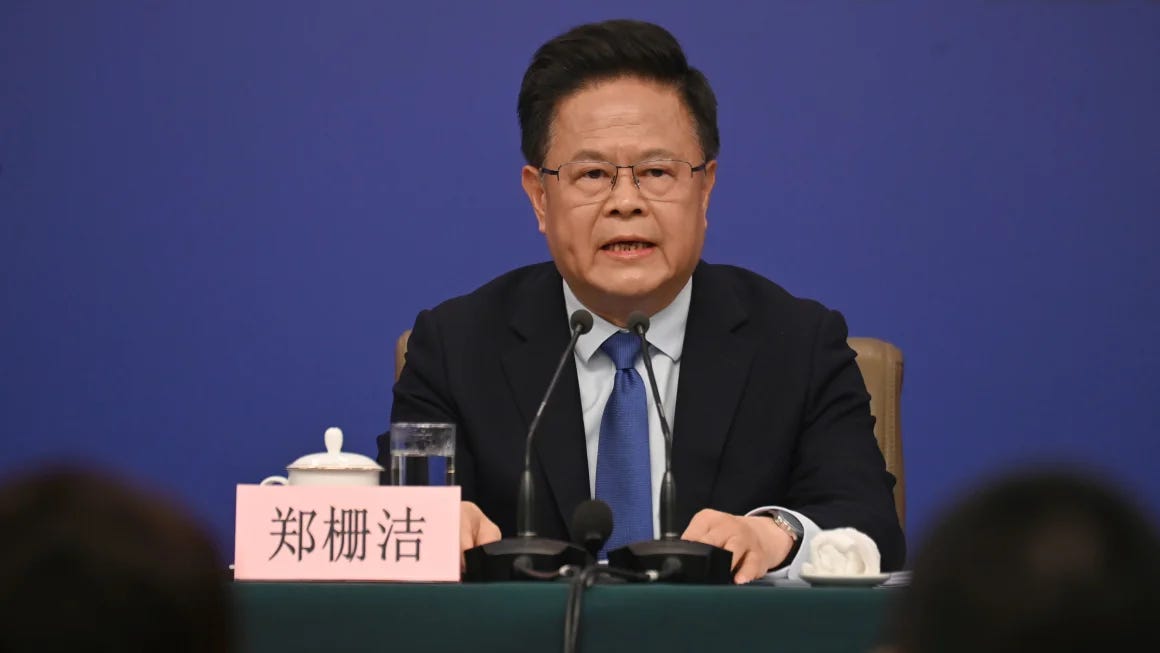
Nectar Gan and Juliana Liu write in CNN that China has unveiled a state-backed fund to boost artificial intelligence, quantum technology, and hydrogen energy, aiming to raise $138 billion over 20 years. Facing US tech restrictions, Beijing seeks self-reliance while also boosting domestic consumption. Policy shifts include raising the budget deficit and expanding investment in infrastructure and consumer subsidies.
Is a Light-Speed Chip Unveiled by China-Led Team the Future of Ultra-Fast Processing?
Holly Chik writes in the South China Morning Post that Chinese researchers have developed a 100 GHz all-optical chip using light instead of electricity to boost processing speed. The breakthrough, led by Peking University, could revolutionise AI, 6G, and autonomous driving by reducing energy consumption and increasing computational efficiency. Scientists are refining the technology for stability and commercial viability.
Chinese Tech Firms from Huawei to Inspur Push ‘All-in-One’ DeepSeek AI Servers
Xinmei Shen writes in the South China Morning Post that over 30 Chinese firms, including Huawei, Lenovo, and Inspur, are integrating DeepSeek AI models into new all-in-one servers. Demand for these AI-powered machines is expected to push China’s AI server market to $7.4 billion in 2025. With US restrictions on Nvidia chips, China is accelerating its shift to domestic AI processors.
De/Cypher Data Dive 📊
In the first half of 2024, China's automobile production reached 13.891 million units, while sales totalled 14.047 million, marking a 4.9% and 6.1% year-on-year increase, respectively. Notably, the sales growth of new energy vehicles significantly outpaced that of gasoline-powered vehicles.


